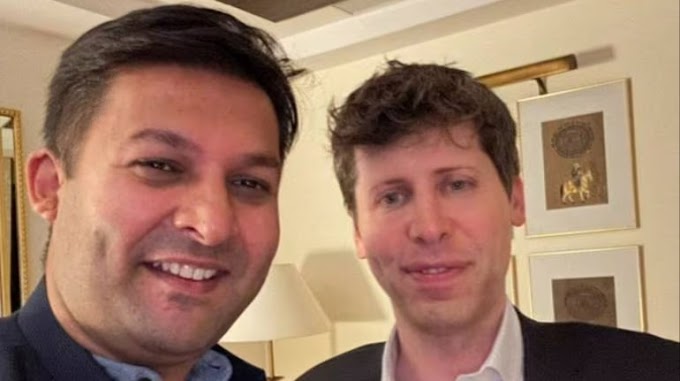Justice Veerappa Calls for Strengthening Lokayukta to Bolster Governance
Introduction
In a significant move to intensify the fight against corruption and improve governance, Justice Veerappa announced that a detailed proposal for strengthening the Lokayukta will soon be submitted to the government. The announcement underscores the urgency of empowering the anti-corruption ombudsman to ensure transparency and accountability in public administration.
The Lokayukta, established to investigate complaints of corruption and maladministration, has been a cornerstone of India's efforts to uphold integrity in governance. However, Justice Veerappa emphasized the need for reforms to make the institution more effective in addressing the complexities of contemporary governance challenges.
The Role of Lokayukta in Governance
The Lokayukta is an independent authority that probes allegations of corruption, nepotism, and misconduct among public officials. It serves as a watchdog, ensuring that government machinery operates in accordance with legal and ethical standards.
Justice Veerappa highlighted that while the Lokayukta has played a crucial role in exposing corruption, its current framework needs to evolve to address:
- Increasing Complexity of Cases: Modern governance involves multifaceted transactions requiring advanced investigative tools.
- Institutional Independence: The Lokayukta must be insulated from political and bureaucratic interference.
- Resource Constraints: Adequate staffing, funding, and technological support are essential for effective operations.
Key Highlights of the Proposal
Justice Veerappa outlined the following measures that would form the basis of the proposal:
Strengthening Investigative Powers
The proposal seeks to grant the Lokayukta greater autonomy in conducting investigations, including:- Enhanced powers to summon officials and access government records.
- Collaboration with modern forensic labs to gather and analyze evidence.
- Authority to initiate suo motu investigations without prior approval.
Legislative Support
Justice Veerappa called for amendments to existing laws to reinforce the Lokayukta's legal standing. This includes granting protection to whistleblowers and imposing stricter penalties for obstruction of investigations.Digital Infrastructure
Leveraging technology is central to the proposal. Measures include:- Establishing a centralized digital complaints portal for citizens.
- Using Artificial Intelligence to identify corruption patterns in large-scale data.
Increased Financial Allocation
Justice Veerappa emphasized the need for higher budgetary allocations to ensure the Lokayukta can hire skilled personnel and maintain advanced facilities.Public Awareness Campaigns
To encourage citizens to report malpractices, the proposal recommends launching campaigns to educate the public about the Lokayukta’s role and how to file complaints.
Justice Veerappa’s Vision for Accountability
Justice Veerappa reiterated that the Lokayukta must act as a pillar of democracy by holding public servants accountable. He stressed:
“An empowered Lokayukta is not just a tool for combating corruption but a beacon of trust for citizens.”
His vision involves transforming the Lokayukta into a proactive body that not only investigates corruption but also prevents it by fostering a culture of transparency.
Challenges in Implementation
Despite the ambitious reforms proposed, there are significant challenges:
- Political Resistance: Strengthening the Lokayukta may face opposition from those who perceive it as a threat to vested interests.
- Bureaucratic Hurdles: Securing cooperation from government departments can be challenging.
- Balancing Power: Careful measures are needed to prevent misuse of expanded powers.
Public Reaction and Expectations
The announcement has garnered widespread attention. Anti-corruption activists, legal experts, and citizens have welcomed the initiative, urging swift action to translate the proposal into reality. However, skepticism remains regarding the government's willingness to adopt such measures comprehensively.
One citizen remarked:
“Strengthening the Lokayukta is a long-overdue step. It’s time to act, not just deliberate.”
Looking Ahead: A Roadmap for Reform
To ensure the success of the proposed reforms, Justice Veerappa recommended the following steps:
- Stakeholder Consultations: Involving legal experts, civil society, and citizens in shaping the reforms.
- Legislative Approval: Ensuring bipartisan support for amendments.
- Periodic Audits: Establishing mechanisms for reviewing the Lokayukta's effectiveness regularly.
Conclusion
Justice Veerappa’s initiative to submit a proposal for strengthening the Lokayukta is a significant stride towards promoting transparency and accountability in governance. If implemented, the proposed measures could empower the institution to combat corruption more effectively and restore public faith in administrative systems.
The onus now lies with the government to act decisively and adopt these reforms, paving the way for a more transparent and ethical governance framework. As India strives to position itself as a global leader, a robust Lokayukta can serve as a cornerstone for achieving clean and accountable governance.














